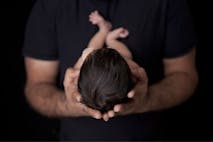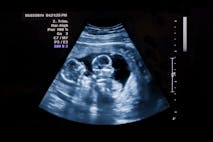
New Archbishop of Canterbury warns of danger in legalizing assisted suicide
Nancy Flanders
·
BREAKING: Missouri judge blocks 8-week abortion ban
Earlier this year, Missouri lawmakers passed a law that bans abortions after eight weeks of pregnancy. While there were no exceptions for rape or incest, there was an exception put into place for risk to the woman’s life or “a major bodily function of the pregnant woman.” The law would have gone into effect on August 28, with mothers exempted from any punishment, and abortion practitioners facing up to 15 years in prison. But the law will not be going into effect, because a federal judge has ruled against it — a not-unexpected move.
US District Judge Howard Sachs blocked the Missouri law, citing viability as his reason. “The various sections specifying prohibitions on abortions at various weeks prior to viability cannot be allowed to go into effect on August 28, as scheduled,” he wrote. “However formulated, the legislation on its face conflicts with the Supreme Court ruling that neither legislative or judicial limits on abortion can be measured by specified weeks or development of a fetus; instead, ‘viability’ is the sole test for a State’s authority to prohibit abortions where there is no maternal health issue.”
As reported by the Kansas City Star:
A federal judge Tuesday temporarily blocked part of Missouri’s new abortion law, pausing prohibitions against abortion based on gestational age, but letting stand the provision barring the procedure for reasons of sex, race, or Down Syndrome diagnosis….
[Planned Parenthood] asked the court to find unconstitutional a ban on abortions after 8 weeks of pregnancy. Planned Parenthood also challenged portions of the law that would trigger bans at 14, 18 and 20 weeks of pregnancy if the initial 8-week ban was found unconstitutional.
The abortion provider wanted the court to also block the so-called “reason ban,” a prohibition on abortions on the basis of race, sex and a diagnosis of Down Syndrome.
Sachs ordered Missouri officials to not enforce the gestational age bans while the matter is in court, saying the law targeted fetuses that were not viable outside of the womb.
A “trigger law” that will automatically ban all abortions should Roe v. Wade ever be overturned was also passed by lawmakers. In that instance, women will only be able to get an abortion in case of a medical emergency, although abortion is never truly medically necessary.
READ: Investigation report: Missouri Planned Parenthood had ‘multiple’ failed abortions
Unsurprisingly, Planned Parenthood’s acting president praised the ruling. “Today’s decision blocks a harmful law that bans abortion before many know they’re pregnant,” Alexis McGill Johnson said in a statement. “What little abortion access in Missouri is left, will stay in place for the time being… Let’s be very clear: these severe restrictions on abortion access do nothing to address disability rights or discrimination. They only stigmatize abortion and shame the people who seek that care.” However, restricting abortion is supposed to protect human beings, who are — as a class of human beings — oppressed, dehumanized, and discriminated against to the point of death.
What Judge Sachs, along with other abortion advocates, does not seem to realize is that viability is a meaningless argument for abortion. Using it as an arbitrary benchmark for when abortion should be allowed only goes to show how ridiculous our abortion laws are. First, medical advancements are continuously pushing back the age at which premature babies can survive. Viability today is typically considered to be around 24 weeks of pregnancy, although babies have survived much younger — as young as 21 weeks. They are also much more likely to survive if given active care, as opposed to palliative care. Artificial wombs may also soon be on the horizon, meaning that a preborn baby could be removed from the mother’s uterus and placed into an artificial womb in cases where the mother had an illness like pre-eclampsia, or even possibly in situations like ectopic or abdominal pregnancies.

But second, and more importantly, viability is the wrong benchmark to use when it comes to protecting life because preborn babies are human beings, from the moment of conception. To deny this is to simply deny science. From the moment the baby is conceived, he already has his own unique DNA, completely separate from his mother. Just 16-21 days after fertilization, the heart begins beating, and detectable brain waves are present as early as six weeks. Preborn babies begin sucking their thumbs at nine weeks, and by 10 weeks, have their own unique fingerprints.
This is why viability is not an acceptable benchmark for protecting life — because in the womb are living human beings. They have the right to live just like every other human being, and that right should be protected, regardless of where they live, how small they may be, or what abilities they may or may not have.
“Like” Live Action News on Facebook for more pro-life news and commentary!
Live Action News is pro-life news and commentary from a pro-life perspective.
Contact editor@liveaction.org for questions, corrections, or if you are seeking permission to reprint any Live Action News content.
Guest Articles: To submit a guest article to Live Action News, email editor@liveaction.org with an attached Word document of 800-1000 words. Please also attach any photos relevant to your submission if applicable. If your submission is accepted for publication, you will be notified within three weeks. Guest articles are not compensated (see our Open License Agreement). Thank you for your interest in Live Action News!

Nancy Flanders
·
Analysis
Cassy Cooke
·
Analysis
Nancy Flanders
·
Newsbreak
Angeline Tan
·
Human Interest
Nancy Flanders
·
Issues
Nancy Flanders
·
Analysis
Cassy Cooke
·
Activism
Cassy Cooke
·
Pop Culture
Cassy Cooke
·
International
Cassy Cooke
·
Analysis
Cassy Cooke
·